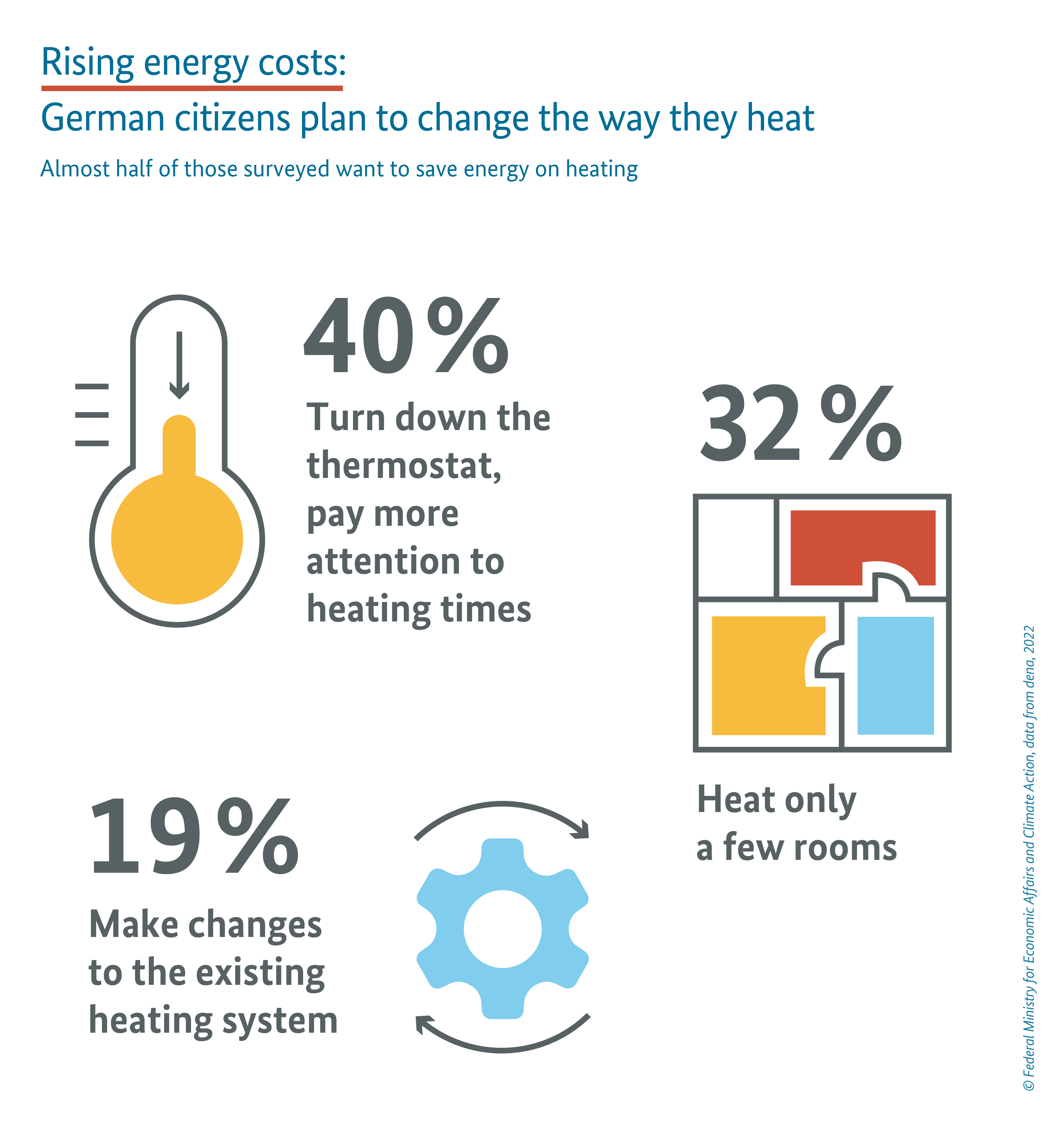Survey: Germans plan to change the way they heat
According to a survey by forsa, many German citizens want to make changes to the way they heat or to switch their heating system. Here the most important results at a glance.
 © Federal Ministry for Economic Affairs and Climate Action
© Federal Ministry for Economic Affairs and Climate Action
In a recent survey by forsa on heating planning, almost all of the 1,000+ respondents said they believed there would be a rise in heating costs, some saying they expected these to be significant. However, only half have already received a higher bill or have been notified about an upcoming rise in costs. Two thirds of all households therefore plan to make changes and, for example, ventilate differently in the future, upgrade their heating technology, or improve their thermal insulation. The study was commissioned by the German Energy Agency (dena).
Forty per cent plan to turn down their thermostats and pay attention to heating times
Forty per cent of respondents said they planned to turn down their thermostats and keep a better eye on heating times. Some 32 per cent said they would heat fewer rooms and just under one in five also wants to save energy by making changes to the heating system. The most frequently mentioned action to save on energy costs was to reduce the flow temperature. Fourteen per cent of respondents said that they planned to expand or replace their heating system – by purchasing electric radiators (4 per cent), investing in renewable technologies such as solar thermal (4 per cent) or installing an additional boiler or fireplace (3 per cent). Eight per cent said they wanted to have insulation work done on the building envelope.
Households: Significant action amid uncertainty
„The survey shows that almost all households have taken note of the crisis and that whilst causing uncertainty, it is also leading to significant action,” says Andreas Kuhlmann, Chief Executive of dena's management board. He said that the survey also showed that people in Germany had a good understanding of the need for financial resources to be used to particularly support the income groups most affected.

